QuestionBackground: This winter a yellow cat started hanging around our back door, so I stared to feed it since I lost my 20yr old kitty in November....eventually we got this kitty inside....she was and is still skittish...she started living inside in March of this year...I can't tell how long she was outside or who she belonged to....she made herself at home uses the litter box....but we haven't been able to touch her....she now rubs against out legs when it's time to eat....but I haven't been able to take to the vet and get her checked out.... she had a lovely semi long thick coat of hair which protected her from the cold all winter...now that it's spring and we've had 80/90 degree days she has started pulling out her hair in clumps....it looks like she is just getting rid of all this thick long hair for the summer...I put her on program just to protect her from fleas....she has no interest in going outside...my question is? Is she just loosing her winter coat? Could the "Program" flea medication be causing this? She's had only one application of the flea medication...How do I get her to be more sociable so we can pet her and I can get her to a vet? Ohio cat
AnswerJanis,
This is a bit of a touchy situation, but this kitty needs to see a vet for some routine tests and a complete physical examination to determine what's happening with her. My suggestion would be to ask around local vet clinics to see if you can find a vet that has a humane live trap on hand that you can borrow. The staff will show you how to use the trap and you'll need to bait the trap with something super smelly and appealing to your kitty (tuna, salmon, sardines and other such canned fish packed in water usually work well), she will go into the trap on her own to eat the food and the door will close behind her once she steps on the trigger mechanism on the floor of the cage. Since she's not 100% tame you'll want to cover her cage with a blanket or towel to minimize her stress levels. Be sure to tell the vet staff that this is a semi-feral kitty who isn't completely comfortable with being handled so that they can take the appropriate precautions against being bitten and/or scratched. The vet may have to sedate your kitty for her exam if she's not going to allow the staff to handle her, this does have an element of risk to it, however it reduces the stress on the vet, his/her staff and the kitty.
As for what might be causing the hair loss there are a wide variety of issues that might be behind it. Be prepared for the vet to take blood samples, skin scrapings, and perform other diagnostic tests if s/he deems it necessary to do so in order to properly diagnose and treat what's happening with this little girl. If the vet does sedate her it might be wise to have her spayed at the same time to minimize her exposure to sedation and anesthesia because each time anyone (human or animal) is under sedation or anesthesia there's a small element of risk that things may not go well, so rather than sedating this kitty twice (now for diagnostic tests and routine health exam, later for her spay surgery) if your vet is willing to spay her on the same day it's a smart idea to go ahead with the surgery. Spaying your kitty won't only prevent accidental pregnancies (female cats can do a pretty good impression of some of Harry Houdini's best acts when they're in season so while she may not be interested in going outside now that may change at some point) it also means she'll be less likely to develop breast & reproductive cancers and certain behavioural issues so it's a good thing for everyone involved.
My recommendation as far as flea prevention would be to not use OTC products on your kitty, there are very few regulations when it comes to ensuring the safety of these products and I absolutely would not use them on my cats. Your vet can recommend prescription medications that are safer and if you want to go with an all natural approach there are other options to consider. If you're interested in learning more about getting this little girl nursed back to physical and psychological health, providing her with the best possible nutrition, the safest vaccine schedule (annual vaccines for low risk cats has been proven to cause a variety of serious medical issues, I can send information about that your way if you're interested in finding out more) and overall care I'd be more than happy to answer any questions or concerns that you might have so please feel free to contact me again at any time.

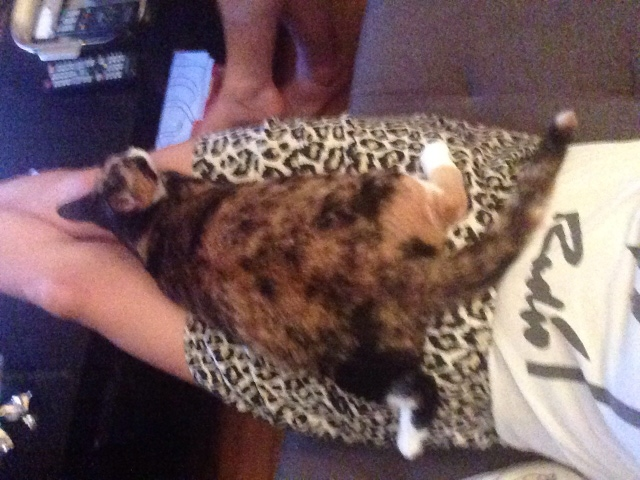 Cat eating too much?
Question
Chickpea
Hello,
Ive attached a photo of
Cat eating too much?
Question
Chickpea
Hello,
Ive attached a photo of
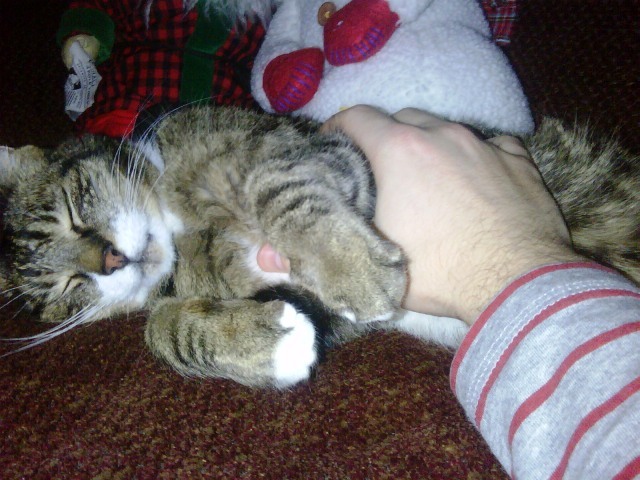 brother and sister loss of cat (16 years)
Question
Jesse on Xmas 2009, Re
kate -
my name
brother and sister loss of cat (16 years)
Question
Jesse on Xmas 2009, Re
kate -
my name
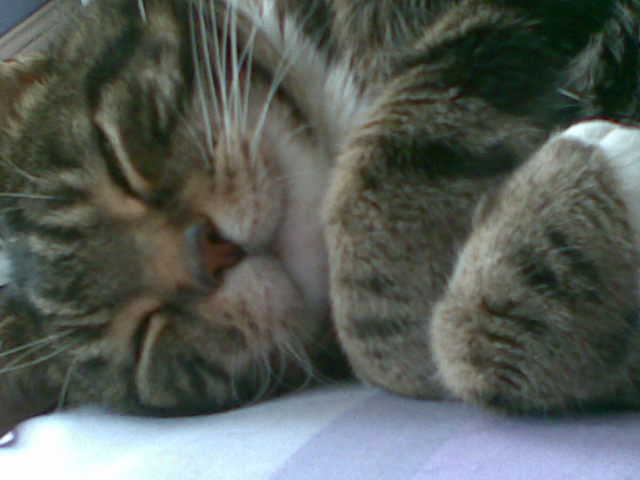 my cat!
QuestionQUESTION: I recently e-mailed a question to you
my cat!
QuestionQUESTION: I recently e-mailed a question to you
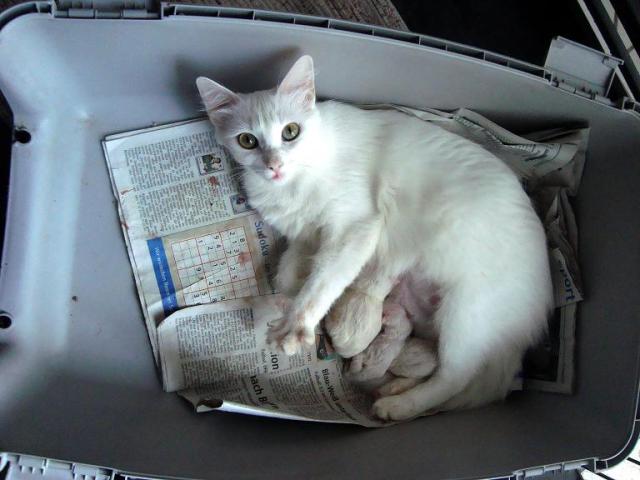 Feline Nutrition
QuestionQUESTION: I also rescue feral cats and kittens
Feline Nutrition
QuestionQUESTION: I also rescue feral cats and kittens
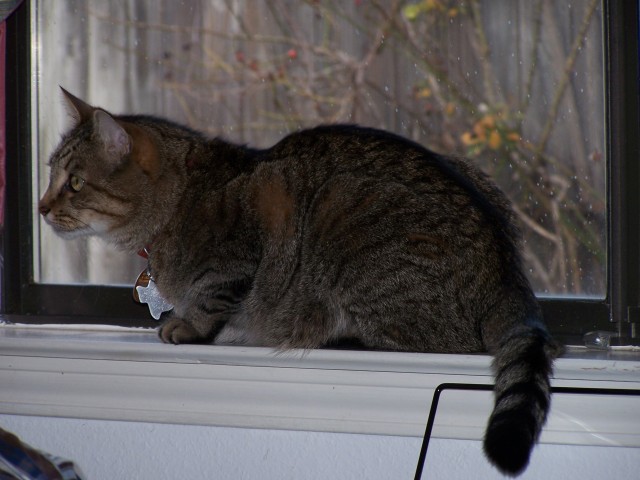 Cat gets angry at tail
Question
Rascal Rasputin
My indoor adult cat seems to g
Cat gets angry at tail
Question
Rascal Rasputin
My indoor adult cat seems to g